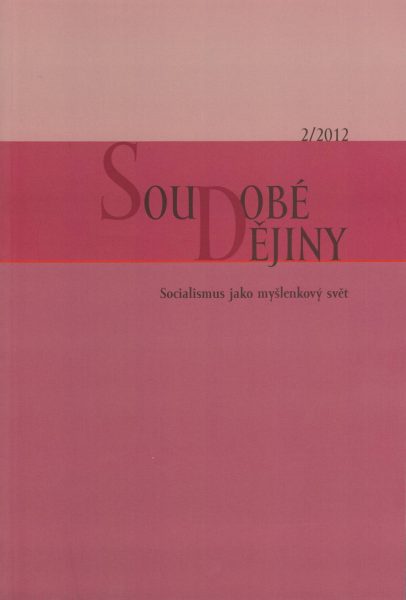Neschopnost rozpoznat situaci?, Nad knihou Jaroslava Meda
An Inability to Distinguish? Concerning Med’s Literární život ve stínu Mnichova
Author(s): Pavel BalounSubject(s): History
Published by: AV ČR - Akademie věd České republiky - Ústav pro soudobé dějiny
Summary/Abstract: The key features of Jaroslav Med’s Literární život ve stínu Mnichova (1938–1939) (Literary life in the shadow of the Munich Agreement, 1938–39) are, according to the author of this article, its attempt to see continuity between the interpretation of the literary life of the Second Republic and the attitudes of the Roman Catholic writers of the period on the one hand and the two decades of the First Republic, particularly from 1928 to 1938, on the other. The author puts this attempt into the context of Czech historians’ recent efforts to capture the essential continuity concealed eneath the surface of the radical changes from the 1930s to the 1950s. He sees one diffi culty in the fuzzy defi nition of the terms Med operates with, for example, ‘fascism’ and ‘literary life’, as the central categories of his book, which offers a picture of literary journalism and personal relations of writers, but not, for example, policies of publishing houses. For this reason, he believes that Med also lacks the conceptual tools necessary for a more differentiated analysis of the problems he raises, as, for example, in his simplistic locating of writers and groups of writers on the political spectrum. The book’s chief contributions, he thinks, are in the search for, and analysis of, the traditions of Czech literature in the fi rst half of the twentieth century. But he rejects as naive Med’s main explanation of the behaviour of the Roman Catholic writers after the end of the First Republic, particularly Med’s claim that in their radical criticism of Masarykian democracy, of left-wing writers and artists, and of Jews, the Roman Catholic writers were unaware of the great change that had suddenly taken place in the autumn of 1938. The author questions Med’s narrative voice as a kind of moral judge who is trying to clear the Roman Catholic writers of the stain of fascism and authoritarian excesses in Czechoslovakia after the Munich Agreement.
Journal: Soudobé Dějiny
- Issue Year: XIX/2012
- Issue No: 02
- Page Range: 298-307
- Page Count: 10
- Language: Czech

